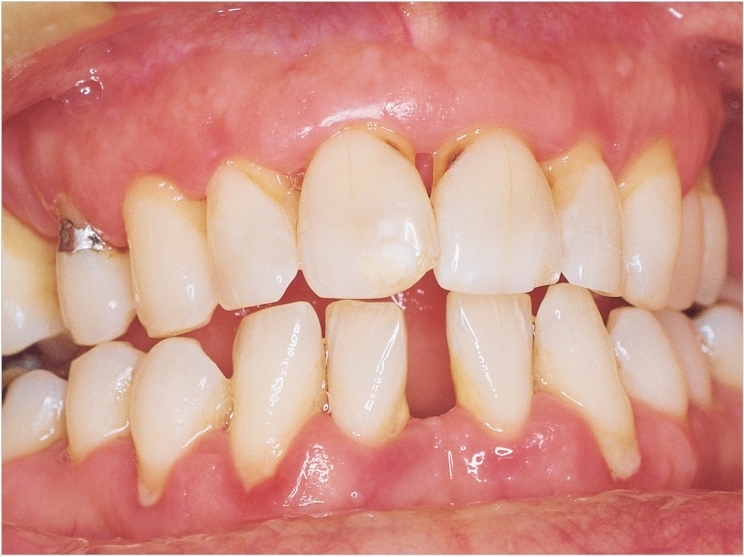
Porphyromonas gingivalis doesn’t just cause periodontal disease. It also has been linked with Alzheimer’s and other degenerative diseases. Now, pharmaceutical company Cortexyme Inc is testing a gingipain inhibitor called COR388 that targets the bacterium in its international Phase 2/3 GAIN trial involving Alzheimer’s patients.
“In Phase 1a/b testing, COR388 was well tolerated and associated with encouraging signs of early clinical activity, providing a solid rationale for the GAIN trial, our ongoing Phase 2/3 study that seeks to enroll approximately 570 patients with mild to moderate Alzheimer’s disease,” said Michael Detke, MD, PhD, Cotexyme’s chief medical officer.
“The response from the Alzheimer’s investigator and patient communities has been strong, and we look forward to enrolling the study and fully evaluating COR388’s utility as a potential treatment for Alzheimer’s,” Detke said.
The trial represents the first large, randomized late-stage clinical study evaluating the gingipain hypothesis, which is based on growing evidence that P gingivalis plays a key role in Alzheimer’s development given its identification in the brains of Alzheimer’s patients and its ability to cause neurodegeneration, inflammation, and other pathology associated with Alzheimer’s in animal models. In these models, the pathological effects were blocked by COR388, which targets the gingipains or toxic proteases released by P gingivalis as it colonizes tissue.
The GAIN trial is based on Phase 1b data demonstrating benefits on both biomarkers and cognitive endpoints. After a 10-day multiple ascending dose study in 24 older health volunteers showed an encouraging tolerability and safety profile, a 28-day study of nine subjects with mild to moderate Alzheimer’s disease between the ages of 55 and 85 was conducted.
The subjects showed a trend to improvement on several cognitive measures, including the Mini-Mental State Exam and Cambridge Neuropsychological Test Automated Battery memory composite of cognitive function score, measures commonly used to assess cognitive impairment in Alzheimer’s patients.
The researchers also reported a statistically significant improvement for COR388 versus placebo on multiple measures of the Winterlight Cognitive Assessment, a speech-based testing platform that identifies cognitive impairment associated with dementia. Across the Phase 1b study, as well as single and multiple ascending dose studies in healthy volunteers, COR388 twice daily was found to be well tolerated and brain penetrant.
Plus, the researchers have demonstrated a reduction in markers of inflammation in the blood (plasma RANTES) and a reduction in pathological ApoE fragments in the cerebrospinal fluid from the patient cohort, suggesting another potential benefit of inhibiting gingipain activity in the brains of patients. COR388, the researchers added, has been shown to block ApoE fragmentation in virto and in human studies.
“We believe this makes COR388 the first investigational small molecule to show beneficial effects related to pathological fragmentation of ApoE, the most common genetic risk factor for Alzheimer’s,” said Detke. “More research is needed, but the data generated to date suggests another avenue by which Porphyromonas gingivalis is implicated in Alzheimer’s pathogenesis.”
With about 90 sites in the United States and Europe, participants are randomized to one or two doses of COR388 capsules of 40 mg or 80 mg twice daily or placebo. The primary endpoint of the study is the mean change in the Alzheimer’s disease Assessment Scale-Cognitive Subscale 11, which has supported past regulatory approval of drugs to treat Alzheimer’s disease. Top-line results are expected by the end of 2021.
Cortexyme presented clinical data supporting its ongoing work in a poster presentation at the Alzheimer’s Association International Conference 2019 in Los Angeles in July.
Related Articles
Gingivitis Linked With Alzheimer’s Disease
Another Study Links Alzheimer’s Disease With Oral Bacteria
Periodontitis May Initiate Alzheimer’s Disease











